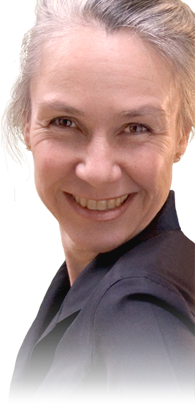


To speak of specialties in Oriental Medicine is somewhat of an oxymoron. This medicine’s view of the client’s entire being is so all-encompassing that it precludes a narrow view. Yet one’s experience, interests, and skills undoubtedly engender greater resonance and comfort in treating certain patterns of disorder over others. Indeed, our very own karma plays a pivotal role in the clients we attract and the conditions we treat.
Many of the skills we call specialties are our response, as physicians, to the conditions our client’s bring to us. And many of the conditions we see are a reflection of the life and times in which we live.
Rare today, for instance, is the client who is not experiencing some degree of intestinal dysbiosis and some stage of adrenal stress, not to mention the effects of chemical or metal toxins in our environment. These conditions are nearly indigenous to experiencing human life in this period of time, in this culture. They are the result of diet and lifestyle, as well as exposure to the considerable physical, mental, emotional, and toxic stresses of modern life in an industrial world. These toxic stresses are like nothing humanity has heretofore experienced. Pharmaceutical and recreational drugs, environmental pollutants, herbicides, pesticides, food additives and lifeless, denatured foods, noise pollution, light pollution — the list of damaging influences to which we’re subjected is staggering. Any responsible health care professional must hone one’s skills to effectively address this onslaught and its insidious consequences.
Since 1994, these issues have been focal points of my studies, and have taken precedence in guiding each client to a new level of well being.
Without addressing these three, the client can only expect partial success and erratic health.
Resolving any one of these three is a complex and multifaceted journey in itself. And each journey is unique to each client. By default, these issues have become my primary specialties. Everyone is experiencing them to some degree, and until they are resolved, the client’s health is compromised.
The prevalence of the three previous syndromes is not the end of the story, however. Indeed, they are the common beginnings of autoimmune disorders. In 1994, when I began treating these conditions, they were rampant in our culture. Now, sixteen years later, autoimmune disorders are equally rampant, and I spend more time managing over-reactive immune systems than ever before.
With cases of Hashimoto’s thyroiditis and celiac disease exploding in our population, managing the immune system is a vital skill for the responsible health care professional. Unfortunately, the vast majority of doctors are still attempting to provide care by treating the thyroid or the gut. While these need attention, they are not the problem, nor should they be the focus of treatment. The immune system is what needs treatment, and very few individuals have the tools to provide this level of treatment. This is true, not just for Hashimoto’s and celiac disease, but for any autoimmune disorder: Hashimoto’s, Grave’s, celiac, chronic active hepatitis, multiple sclerosis, ulcerative colitis, Crohn’s disease, Sjogren’s, Chronic Fatigue Immune Dysfunction Syndrome, rheumatoid arthritis, systemic lupus erythematosus, and many other disorders which are only recently being identified as a malfunction of the immune system.
These issues now constitute a very large portion of my practice, and staying at the leading edge of treatment is my highest professional priority.
A client with Hashimoto’s told me that she was previously given repetitive negative responses to her questions at a federal bastion of conventional health care. Her questions were reasonable enquiries, such as…
To each of these questions, she was given the same, mechanical reply, by the same doctor: “We don’t do that.”
At Future Medicine Now, we do all of these things, and much more.
While internal medicine has always been my primary interest, in 1995 I embarked on a course of study culminating in certification for acupuncture orthopedics — in other words, a specialty in the treatment of musculoskeletal disorders, most of which manifest as pain. Since that time, my interest and study has followed both paths: internal medicine and orthopedic medicine. Each has brought insights to the other. In practice, the two flow seamlessly together, and my clients appreciate the balance this brings to their experience.
Clients often arrive at my door with an incorrect diagnosis for their pain — common ones are arthritis, degenerative disc disease, or bursitis. Drugs and surgery are usually the recommendations offered by conventional medicine. At Future Medicine Now, the vast majority of the time, a correct diagnosis leads to resolution of the problem through utilization of the techniques we use.
These techniques are...
For example, I regularly see...
These results are accompanied by more energy, more strength, and the acquired wisdom to make lasting change.
2202 Menaul NE
This site is best viewed in the current version of Safari.